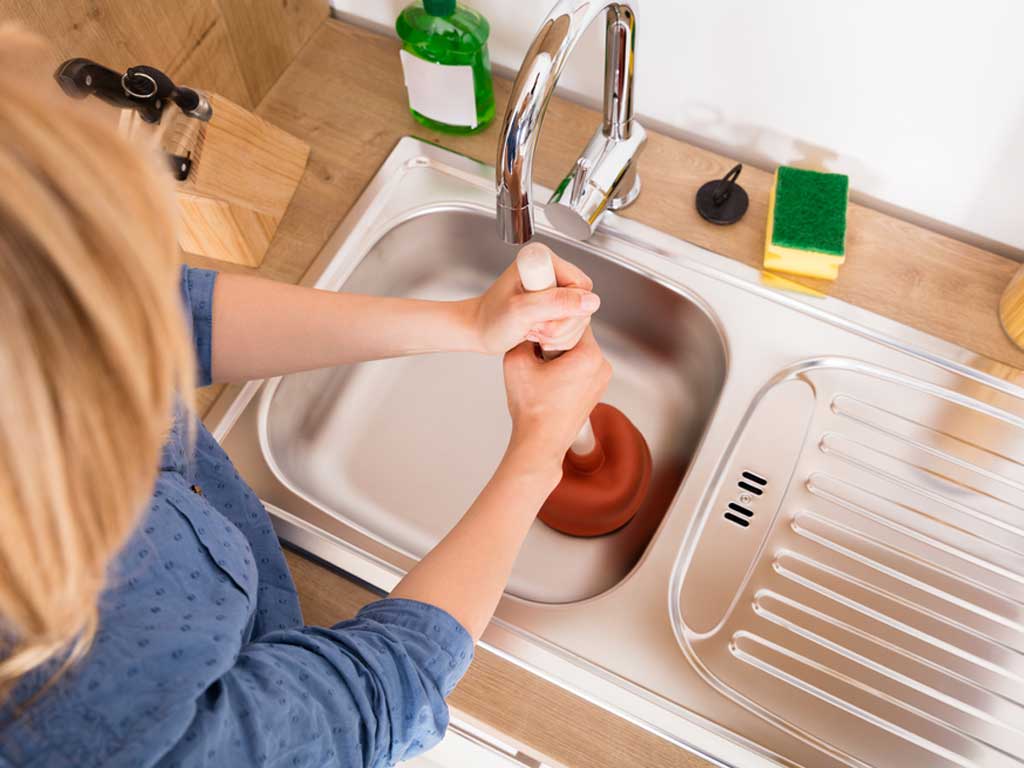Do you live in an apartment building and worry about grease and oil in your apartment building pipes? Many people are unaware that grease, oils, and fats can all contribute to excess buildup in the pipes that are running from residential units to the main sewer system. Grease, oils, and fats are constantly being poured down drains because many tenants have realized how easy it is for the liquid to be poured while it is still warm.

Since the liquids can easily be poured down the drain, it gives the impression that the act is not harmful. However, what happens as the liquid begins to cool? As the liquid begins to cool, it will eventually harden and form a buildup in the pipes. Once there is a buildup inside the pipes, the flow will be restricted, and the pipes will eventually begin to clog.
One of the major contributors to sewer overflows is grease, and it is also one of the main threats to the environment and your health. One of the best things residents can do is to store their fats, oils, or grease in a can that can be lined by plastic. Disposing of the grease, fats, and oils in a can will make it easier to dispose of it in the garbage, and this will be better and safer than pouring it down the drain.
Since fats, oils, and grease are byproducts of cooking, you can find these in the following;
- Vegetable oil
- Butter or shortening
- Gravy
- Scraps from your meals
- Fats and oils from the meats that are cooked
- Sauces
What Can Blockage Lead To?
When fats, oils, and grease are disposed of improperly, the accumulation of these things will not only cause blockage and buildup, but it will also reduce the capacity of your water system. When your wastewater system’s capacity has been reduced, the entire effectiveness of the system will be altered. In some cases, the blockage can lead to the following:
- sewage backups
- an overflow of the sewer system; this can impact other people’s property
Grease Traps
A grease trap or a grease interceptor has been designed to keep oils, fats, and grease from making their way into sewer lines. They can be placed outside of a kitchen or inside a kitchen. They are both designed to keep the fats, oils, and grease together long enough for it to cool, become a solid, and eventually separate from the extra waste. Once the grease has become separated, you will be able to dispose of it in the proper manner.
What Can You Do?
If you want to prevent overflows, one of the best things you can do is to make sure fats, oils, and grease never make its way into the sewer system. You may be surprised at how easy it will be for you to minimize your fats, oils, and grease sources. These sources generally come from washing your pots and pans before using them. The buildup of these sources in wastewater systems and pipes will increase the cost of maintaining the wastewater and sewer systems, and this will have an impact on health and rates.
If you want to keep your drains free of fat, you can do the following:
- Before you wash your pots and pans, use a napkin or paper towel to wipe any fat, oil, and grease that may be present. Once you have wiped the fats, oils, and grease from your pans, dispose of your napkin the trash.
- Use sink strainers in your kitchen sink so you can catch any food waste.
- If there are any scraps after your meal, do not dispose of it in your garbage disposal. Place any food scraps in your trash can.
- Rinse your pots and pans with cold water before they are placed in a dishwasher.
We can all do our part when it comes to minimizing the negative impact of having fats, oils, and grease in our wastewater and sewer systems. What do you plan to do to make sure everyone is aware of the risks of disposing of these sources down the drains? For more information on how we can help you ensure your environment is protected, please contact Aladdin Plumbing today.
